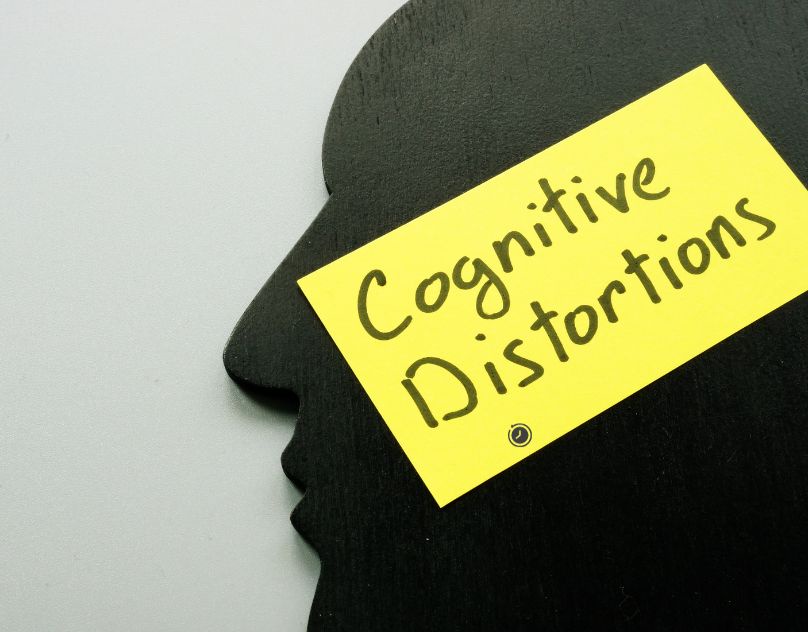Cognitive distortions are thinking patterns that can negatively impact our mental health and well-being. These distortions are often automatic and irrational thoughts that contribute to anxiety, depression, and other mental health issues. In this article, we will explore cognitive distortions, how they affect us, and most importantly, how to challenge them effectively. We will also briefly discuss the WISC assessment cost in Australia, a topic of interest for many parents and educators.
Understanding Cognitive Distortions
Cognitive distortions are irrational and exaggerated thoughts that often lead to emotional distress. They can affect anyone, regardless of age, gender, or background. Understanding these distortions is the first step in challenging and managing them.
Common Cognitive Distortions
- All-or-Nothing Thinking: This distortion involves viewing situations in extreme, black-and-white terms, with no middle ground. For example, if you didn't achieve a perfect score on a test, you might consider yourself a complete failure.
- Overgeneralisation: Overgeneralisation occurs when you draw broad conclusions based on limited evidence. If you make a mistake at work, you may think, "I always mess up everything."
- Mental Filtering: This distortion involves focusing solely on the negative aspects of a situation and ignoring any positive elements. For instance, you receive several compliments on a presentation, but you obsess over one critical comment.
- Jumping to Conclusions: This distortion occurs when you assume the worst possible outcome without any supporting evidence. For example, you might believe that a friend is angry with you just because they didn't reply to a text message.
- Catastrophising: Catastrophising involves exaggerating the potential consequences of a situation. If you have a minor health issue, you might convince yourself that it's a life-threatening illness.
- Emotional Reasoning: Emotional reasoning happens when you believe your emotions are a true reflection of reality. For instance, if you feel anxious in a social situation, you might conclude that you are a social failure.
- Should Statements: This distortion involves setting rigid and unrealistic expectations for yourself and others. When these expectations are not met, you may feel frustration and disappointment. For example, thinking, "I should always be perfect."
- Labeling and Mislabeling: Labeling involves attaching negative labels to yourself or others based on specific behaviors. Mislabeling goes a step further by making global judgments about a person's character based on one action. For example, calling yourself "a loser" because you made a mistake.
The Impact of Cognitive Distortions
Cognitive distortions can have a profound impact on your mental health and daily life. When you consistently engage in these distorted thought patterns, it can lead to:
Increased Stress and Anxiety
Cognitive distortions often create unnecessary worry and stress. Constantly expecting the worst and seeing situations as dire can leave you in a state of perpetual anxiety.
Depression and Low Self-Esteem
These distortions contribute to feelings of inadequacy and low self-worth. When you label yourself with negative terms, it can lead to depression and a negative self-image.
Impaired Decision-Making
Cognitive distortions can cloud your judgment, making it challenging to make rational decisions. You may focus on the negatives, leading to choices based on fear rather than reason.
Strained Relationships
If you engage in cognitive distortions, it can strain your relationships. Labeling others unfairly and jumping to conclusions can lead to conflicts and misunderstandings.
Challenging Cognitive Distortions
The good news is that cognitive distortions are not set in stone. You can challenge and reframe these thoughts with practice and the right techniques.
Mindfulness and Self-Awareness
One of the first steps in challenging cognitive distortions is becoming aware of them. Mindfulness, which involves being present in the moment, can help you recognise when you're engaging in distorted thinking. When you catch yourself, pause and ask if there is evidence to support your thoughts.
Rational Self-Talk
Challenge your irrational thoughts with rational self-talk. For example, if you catch yourself catastrophising about an upcoming job interview, remind yourself that you've prepared well and that the worst-case scenario is unlikely.
Seek Professional Help
If cognitive distortions severely impact your life, seeking professional help from a psychologist or therapist is essential. They can provide you with the necessary tools and strategies to challenge and manage these distortions effectively.
The WISC Assessment Cost in Australia
Let's briefly touch on the WISC assessment cost in Australia. The Wechsler Intelligence Scale for Children (WISC) is a widely used assessment tool for measuring a child's cognitive abilities and identifying potential learning difficulties. The cost of this assessment can vary depending on several factors, including the location, the specific assessment center, and any additional services included.
The average cost of a WISC assessment in Australia ranges from $500 to $1000. Remember that this cost may not cover any follow-up assessments or consultations, so it's essential to inquire about the services included in the price.
Government Support
In some cases, government programs or educational institutions may offer financial assistance to cover the WISC assessment cost for children who require it. Be sure to check with your local education department or relevant authorities to explore possible financial support options.
Cognitive distortions can significantly impact your mental health, but they are not insurmountable. By understanding these distortions, recognising when they occur, and applying techniques to challenge them, you can regain control over your thoughts and emotions. Remember that seeking professional help is a viable option if cognitive distortions are overwhelming.
Additionally, for parents and educators in Australia, understanding the WISC assessment cost is essential when considering the cognitive assessment needs of children. It's important to research the options available and inquire about potential financial support to ensure that every child receives the assessment they need for their academic and personal development.


No comments yet